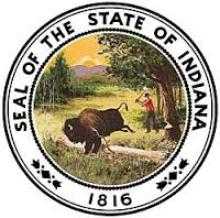Indiana Eases Easements For Electric Co-ops; FIBRE Act
The State Legislature in Indiana sent SB 478 to Governor Eric Holcomb earlier this session; he recently signed the bill into law. Also known as the Facilitating Internet Broadband Rural Expansion (FIBRE) Act, the new law allows electric cooperatives with easements for electric lines to use those same easement for fiber infrastructure. The change in existing law will allow rural electric cooperatives to bring high-quality Internet access to the many rural regions in Indiana that are now unserved or underserved.
Updating Easements For Connectivity
SB 478 applies only to existing easements between electric suppliers and property owners. It doesn’t apply to new electric easements, railroad property, or the installation of new poles, conduit, or other structures. Other exceptions also apply to limit the new easement applications to existing infrastructure.
The language of the bill provides in detail the steps that a property owner can take if they oppose the installation of the new infrastructure under the purview of an existing easement. It also lays out the information that an electricity provider must provide to the property owner regarding the plan for fiber infrastructure deployment and planned delivery. The bill goes on to establish further procedures if a property owner decides to pursue legal action if they feel their property value is decreased due to the new infrastructure or other related matters.
Lastly, the bill lays out procedural requirements for an electric cooperative that decides to offer broadband Internet. They must create a separate entity and maintain a separate accounting system.
Learning From The Co-op Guys
Republican State Senator Eric Koch, lead author on the bill, introduced the legislation as part of his ongoing efforts to improve connectivity in Indiana’s rural areas. According to a March article in the Indiana Economic Digest:




